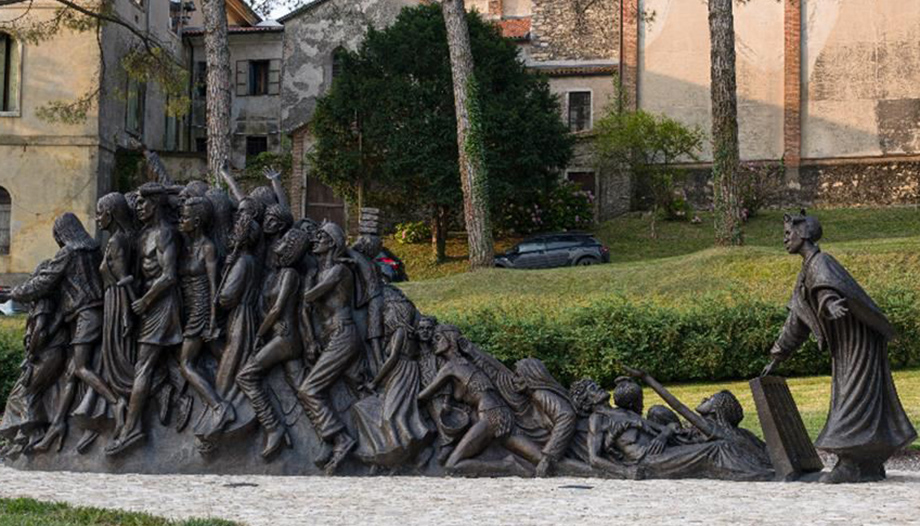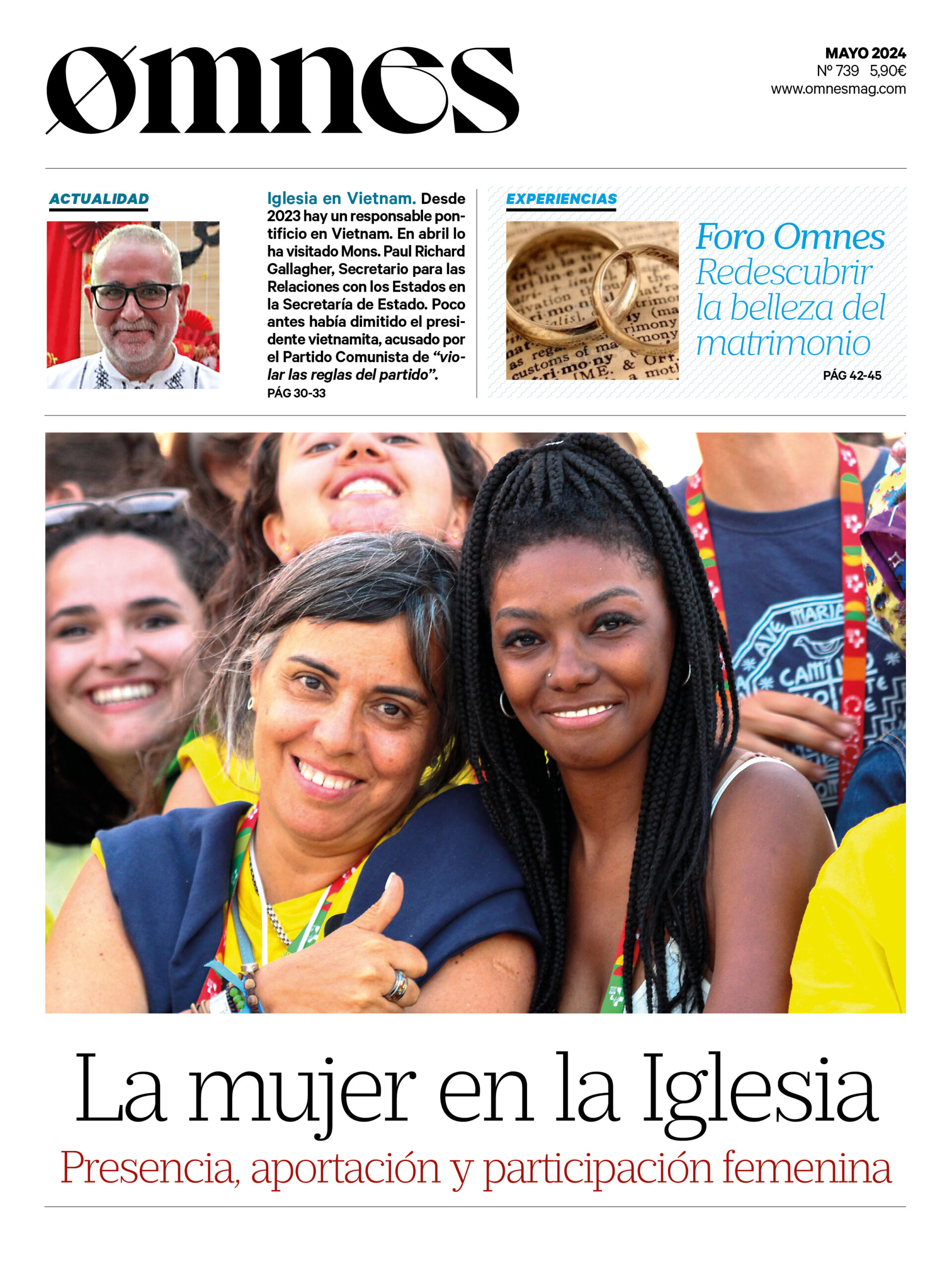Originally from Sudan, where she was born in 1869, she was kidnapped at the age of seven and sold several times on the slave market. Her captors gave her the name Bakhita ("lucky"). In 1882 she was bought in Khartoum by the Italian consul Calisto Legnani, who entrusted her to the family of Augusto Michieli and she became his daughter's nanny.
When the Michieli family moved to the Red Sea, Bakhita stayed with her daughter at the home of the Canossian Sisters in Venice. Here she had the opportunity to learn about the Christian faith and, on January 9, 1890, she asked to be baptized, taking the name Giuseppina. In 1893, after an intense journey, she decided to become a Canossian nun to serve God, who had given her so many proofs of his love. She was canonized by John Paul II in 2000.
On June 29, the Vatican Secretary of State, Cardinal Pietro Parolin, blessed in Schio (Vicenza) the sculpture "Let the oppressed go free", dedicated to St. Josephine Bakhita, who worked against slavery and human trafficking.
Schio is the city where St. Bakhita, protector of victims of human trafficking and also patron saint of Sudan, lived and is buried.
Created by Canadian artist Timothy SchmalzThe sculpture depicts the saint as she opens a trap door, from which emerge figures representing the various forms of trafficking that exist in the world. "One might think," Parolin commented, "that the people represented end up at the height of the trapdoor, but in reality they continue underground. If not all the people of the world, at least those present here can see themselves represented, because I believe that we all have a slavery from which to free ourselves," and invited to "ask St. Bakhita to help us free ourselves from the closedness that we carry inside. From the individualism that prevents us from caring for others, as we should. Pope Francis continues to make an appeal about this: about the indifference with which we look at the reality of our day, of our days, especially the reality of suffering, pain and vulnerability. Only if we free ourselves from this slavery - he concluded - will we truly be able to help others".
Every February 8, St. Bakhita's memorial day, the Church celebrates the World Day of Prayer and Reflection against Human Trafficking.
The bronze statue, which measures 6 meters long, 1.2 meters wide and 2.4 meters high, was made possible thanks to the financial contribution of the Rudolph P. Bratty Family Foundation, belonging to a family that emigrated to Canada from northern Italy.
The work "Let The Oppressed Go Free" is inspired by a passage from the Bible (Isaiah 58:6), from which Schmalz took the title: "This is the fast I desire, O oracle of the Lord: to loose the chains of wickedness, to throw off the bonds of the yoke, to set the oppressed free, and to break every yoke.
The sculpture installed in Schio is the original work, but there are already other replicas, such as the one blessed by the Cardinal and Archbishop of New York Timothy Dolan at St. Patrick's Cathedral (New York, USA) last October or the one that will be installed at Regis College in Toronto (Canada) next July.
The sculpture is related to 'Angels Unawares', another work by Schmalz installed in St. Peter's Square in Rome and blessed by Pope Francis in 2019. In both works, the Canadian artist expresses human vulnerability: in 'Angels Unawares' he highlights the suffering and lack of protection suffered by migrants, while in 'Let The Oppressed Go Free' he tries to give visibility to the problem of human trafficking.
Present at the unveiling ceremony were: Mayor Valter Orsi; the donor of the work and president of the Rudolph P. Bratty Family Foundation, Christopher Bratty; the author of the sculpture, Timothy Schmalz; the general superior of the Canossian Daughters of Charity, Mother Sandra Maggiolo; the international coordinator of Talhita Kum, Sister Abby Avelino; the parish priest and moderator of the Pastoral Unit of Santa Bakhita, Monsignor Carlo Guidolin; and the president of the Bakhita Schio-Sudan Association, Gianfrancesco Sartori.












